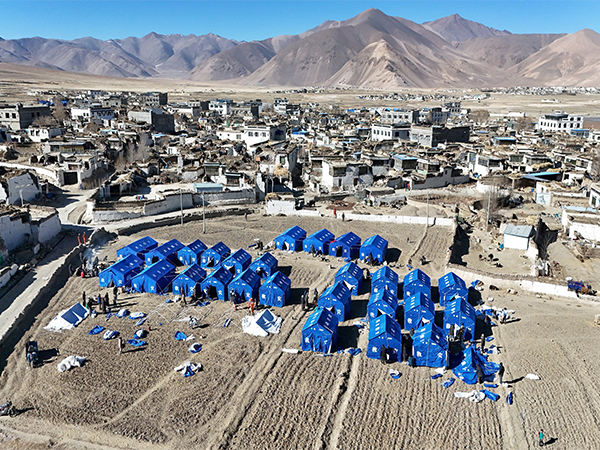Report reveals tactics employed by China for infiltration in Central Asia
Feb 23, 2024

Beijing [China], February 23 : The Centre for Uyghur Studies (CUS), an institute that combines academic research and human rights advocacy and is focused on Uyghur-related studies and activities, released a report on Thursday highlighting the effects and tactics employed by China to infiltrate Central Asia.
According to a press statement released by CUS, the 106-page report analyses the strong role of two major entities belonging to China, namely the Shanghai Cooperation Organisation and China's ambitious Belt and Road Initiative (BRI), which serve as the cornerstones for China's increasing encroachment into the region.
The statement further states the factors influencing the use of East Turkistan as a corridor and its geopolitical implications. Furthermore, the report also extends to China's burgeoning presence in Central Asian countries through large-scale infrastructure projects, enhanced bilateral trade, and collaborative security measures. An important aspect of this study is the investigation of China's soft power strategies in shaping regional dynamics.
Highlighting this, the report stated that "The Shanghai Cooperation Organization (SCO) has provided China with a legal status and a stable mechanism for active military activity in the region, and the newly established China-Central Asia Summit has further enhanced China`s political position in the region. The role of Central Asia is vital in the <
The report also sheds light on the alarming human rights abuses linked to these relationships, raising critical questions about the ethical implications of such partnerships and CCP's exporting corruption through BRI. Additionally, China's support and bolstering of authoritarian regimes in the region are critically examined, probing the impact on regional governance and political stability.
Additionally, the report even delves into unraveling the complex web of economic, diplomatic, and security ties, and their profound implications for the region's future and its place in global geopolitics. While highlighting the genocide inflicted by China on the Uyghur community, it stated that "the Chinese Communist Party has accused those who recognize the Uyghur Genocide in East Turkistan or states that speak out about the Uyghur Genocide of interfering in their internal affairs. It explains this argument with the principle of noninterference in internal affairs. However, these analyses to date have revealed that China`s principle of non-interference in internal affairs actually means supporting authoritarian regimes all over the world, especially in Central Asian countries. This perspective, which ignores universal international rules, also applies to the relations between China and Central Asia".
Conclusively, the report reveals a multifaceted and deeply impactful narrative of China`s infiltration into Central Asia. Through a combination of diplomatic initiatives, economic investments, and security alliances, China has successfully expanded its influence in this strategically important region.
The Shanghai Cooperation Organization and the Belt and Road Initiative have emerged as critical instruments in this expansion, facilitating infrastructure development, trade, and regional cooperation. However, this growing influence has not been without its challenges and controversies.




















